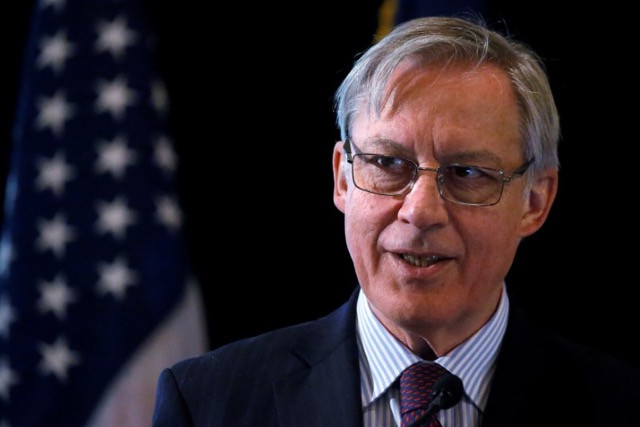Christian Noyer, tasked by the French government with making the case for Paris as a post-Brexit financial hub, said the attitude of bankers to Paris has improved after elections that saw Macron, a pro-EU ex-banker and former economy minister, sweep to power.
“It is clear that it’s easier to sell France because it’s Macron. The context has changed,” Noyer told Reuters in an interview in Paris.
Bankers have said that high payroll charges and constantly changing taxation put Paris behind other European financial hubs in terms of competitiveness.
France has made its tax regime for expatriates more favourable, and set up a fast-track licence application, while Macron promises an overhaul of the labour market, tax and pension systems.
“Now with the draft reforms, if things go as the intention is today, in three or four months from now we shall have much better labour flexibility than Germany and the like.”
Since Britain voted a year ago to leave the European Union, banks in London have been drawing up contingency plans to ensure they can still serve customers across Europe even if there is no single market access after 2019.
Noyer has held hundreds of meetings with bankers in London, New York and elsewhere to drum up business for the French financial capital.
But to date, rival financial centres like Frankfurt, Dublin and Luxembourg have stolen the headlines as banks, insurers and asset managers reveal plans to open new beachheads there.
On Tuesday Japan’s largest brokerage, Nomura Holdings Inc said it was applying for a licence to operate in Frankfurt, just days after No.2 Japanese brokerage Daiwa Securities Group said it would set up a subsidiary there.
Noyer said Paris is also chalking up successes, however.
“In some cases, banks don’t even need a licence. Some of them have already done it and they decided not to announce it. Some of them have actual licences, are ready to operate,” Noyer said.
“They decided to say nothing and I respect their decision. It’s a little bit frustrating, but it’s like that.”
Other banks have said they were at the point of asking for a licence to operate in Paris as a “Plan B”.
“Plan A is we use the licence we have in such and such a place, but we create a branch of this entity that exists, and the branch will receive the trading room,” Noyer said.
“What I see at the moment is not markets moving to Frankfurt but markets moving to Paris. When they say, OK we are going to use our existing entity in Frankfurt and build on it, I think that means they use that to create a branch in Paris and develop things in Paris.”
EURO CLEARING
LCH in London is Europe’s main centre for clearing euro-denominated “swaps”, a derivative contract that enables companies to insure themselves against adverse moves in currencies or interest rates.
Worried about such an important euro-based activity taking place outside the EU, the bloc has proposed a system of “enhanced supervision” of LCH after Brexit.
But Noyer said this does “not suffice” and that the EU should go further and require a portion of clearing to move to the mainland, as the European Central Bank has long sought.
“In the end, you are only sure of what’s under your control and jurisdiction,” Noyer said.
“We need the legislative power, the judiciary power, supervisory power, the central bank control of liquidity. I cannot imagine really that we get that in London, having an inspection from time to time.”
If the activity was split 50:50 between London and Paris, there would be enough business passing through the euro zone for regulators to have a grip on market players, he said.
“They could say, ‘OK, if you don’t make that change then we order all banks to go to a contract in Paris and not any more in London’ and the threat would be sufficient.”
Paris would, however, face euro clearing competition from Eurex in Frankfurt.
Noyer’s comments echo Bank of England Governor Mark Carney, who has said an “appropriate” portion of euro clearing should remain in London after Brexit.
“It does not mean that we should create disorder. We need to analyse clearly, make sure what are the contracts we need, at least partly in the EU, and discuss with industry what would be the optimal technical solutions, how do we need to develop that,” Noyer said.
“Myself, I would say it may take up to four years for some market segments”.
(Reporting by Huw Jones; Editing by Hugh Lawson)
